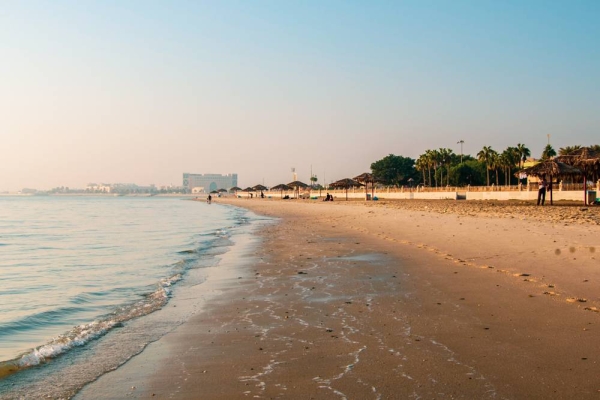A minor earthquake with a magnitude of 2.5 on the Richter scale was experienced in an area south of Al-Shuqaiq, a coastal city in the southwestern region of Jazan, Saudi Arabia. The incident occurred at 2:30 on Friday afternoon, according to the Saudi Geological Survey. Fortunately, there were no reports of any damage or casualties resulting from the earthquake. Tariq Aba Al-Khail, spokesperson for the Saudi Geological Survey, assured the public that the situation was stable and that no aftershocks had been recorded.
The Saudi Geological Survey is responsible for monitoring and assessing seismic activity in the region to ensure the safety and well-being of the residents. In the event of an earthquake, the organization is equipped to provide timely and accurate information to the public to help them stay informed and take necessary precautions. Additionally, the survey team is trained to assess the impact of earthquakes on infrastructure and buildings to determine if any repairs or reinforcements are needed to prevent future damage.
Earthquakes are a natural phenomenon that can occur at any time and in any location around the world. While some earthquakes may be minor and go unnoticed, others can cause significant damage and devastation. It is important for communities to be prepared for seismic events by having emergency kits, evacuation plans, and knowledge of safe practices during an earthquake. By staying informed and taking proactive measures, individuals can reduce the risk of injury or harm during a seismic event.
The earthquake in Al-Shuqaiq serves as a reminder of the importance of being prepared for natural disasters and knowing how to respond in emergency situations. While this particular earthquake was minor and did not result in any damage, it is crucial for residents to remain vigilant and stay informed about potential risks in their area. By working together with organizations like the Saudi Geological Survey, communities can better understand and mitigate the impacts of seismic activity, ensuring the safety and security of all residents.
In the event of an earthquake, it is essential for individuals to remain calm and follow safety guidelines to protect themselves and others from harm. This includes seeking shelter under sturdy furniture, staying away from windows and heavy objects, and being prepared to evacuate if necessary. By practicing these safety measures and staying informed about earthquake preparedness, residents can minimize the risks associated with seismic events and increase their chances of staying safe during a natural disaster.
Overall, the minor earthquake in Al-Shuqaiq highlights the importance of effective monitoring and response systems in place to mitigate the impact of seismic events. By working together with organizations like the Saudi Geological Survey, communities can better prepare for and respond to earthquakes, ensuring the safety and well-being of all residents. Through education, preparedness, and collaboration, individuals can reduce the risks associated with natural disasters and build more resilient communities in the face of potential threats.








